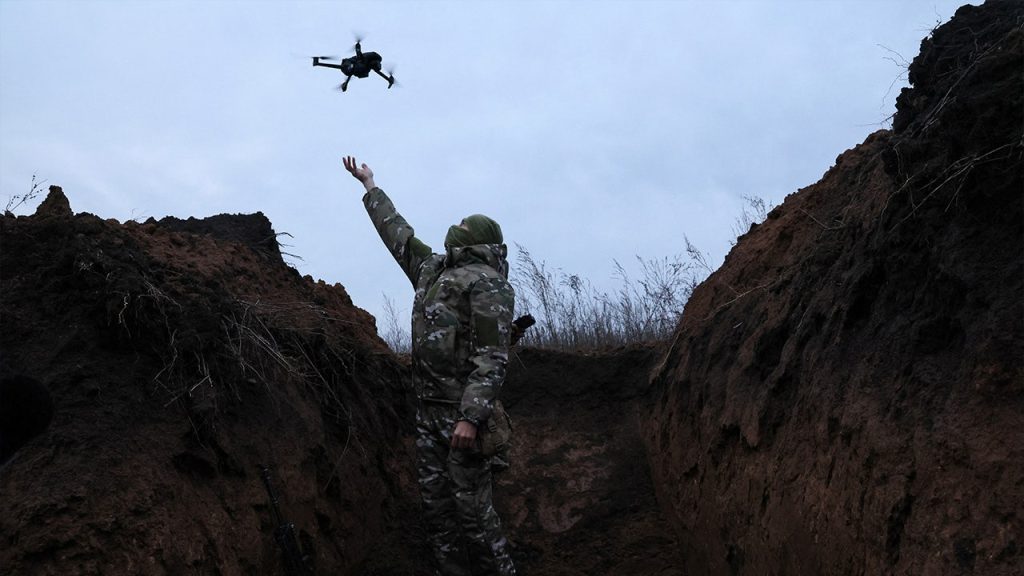The use of drones in modern warfare has drastically changed how military units operate on the front lines, particularly in the context of the conflict between Russia and Ukraine. Both sides are engaged in an AI-enabled autonomous weapons arms race, with evidence suggesting that AI has been utilized for acquiring battlefield intelligence. While methods to defeat drones currently exist, integrating AI technology could allow drones to be pre-programmed to identify and target certain objectives without human control.
The battle between Russia and Ukraine has been ongoing for more than two years, with technological advancements creating new challenges for military strategists and soldiers. Drones have disrupted traditional wartime principles, making maneuverability on the battlefield extremely difficult. The use of drones has eliminated tactical surprise and the ability to find concealment or cover, posing significant challenges for military analysts as previous military doctrines have become irrelevant in the face of drone warfare.
The Ukrainian 2023 counteroffensive failed due to the successful implementation of drone reconnaissance capabilities by the Russian military, which allowed them to degrade Ukrainian forces before they could advance on Russian positions. The tactical reality of drone warfare has caused traditional battle plans to fall apart, highlighting the need for new strategies and doctrines to navigate the evolving landscape of modern warfare.
There is an urgent need for military innovation and adaptation in response to the widespread use of drones in conflict zones. The evolving nature of warfare driven by advancements in AI technology demands innovative solutions to address the challenges posed by drone warfare. Military analysts are struggling to keep pace with the rapid advancements in drone technology, underscoring the critical importance of developing new tactics and countermeasures to address the changing realities of modern warfare.
The integration of AI technology in drones has the potential to revolutionize warfare, enabling machines to autonomously identify and engage targets without the need for human operators. The AI arms race between Russia and Ukraine represents a significant development in the evolution of warfare, with implications for the future of military strategy and tactics. As the use of drones becomes more prevalent on the battlefield, the need for innovative approaches to address the challenges posed by this technology becomes increasingly urgent.
Overall, the widespread use of drones in modern warfare has fundamentally altered the dynamics of conflict, posing new challenges for military planners and operators. The integration of AI technology in drones has the potential to reshape the future of warfare, emphasizing the need for strategic innovation and adaptation in response to the changing nature of conflict. As military analysts grapple with the implications of drone warfare, it becomes clear that new approaches and doctrines are essential to navigate the complexities of modern warfare in the age of AI-enabled autonomous weapons.


